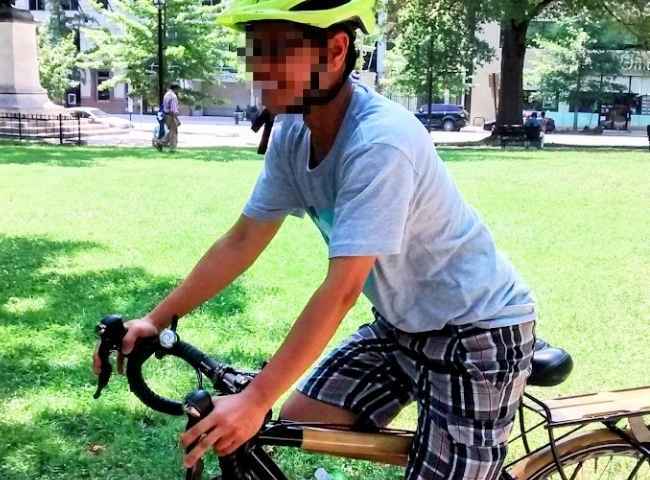Meet Prince

Prince's story
Thrive Fund recipient
Prince (he/they) has faced numerous barriers in accessing gender-affirming care, even in a state where Medicaid offers coverage. After years of struggling to address keloid scars from their 2018 top surgery—compounded by an allergy to scar tapes—Prince switched primary care providers to finally secure a referral for treatment. Now, instead of surgical revision, they are pursuing non-surgical options like acupuncture and medical tattooing to improve the appearance of their scars and alleviate gender dysphoria. These steps will help them feel more confident as they prepare for law school in fall 2025.
As a neurodivergent individual, Prince has demonstrated remarkable resilience throughout their life. They grew up without access to proper diagnoses or care, relying on cycling and outdoor adventures as a means of coping. A highlight of their journey includes a 4,262-mile cross-country cycling tour in 2016, which showcased their determination and adventurous spirit. Their drive extends beyond personal challenges—Prince is committed to increasing trans and nonbinary representation in law, a field where such voices are critically underrepresented.
With aspirations to attend law school on a full scholarship, Prince is eager to break barriers and create a more inclusive legal profession. Access to medical tattooing will empower them to pursue new opportunities in modeling, event work, and more, while alleviating the social anxiety and dysphoria that have limited their pursuits. Prince is excited to embrace this next chapter with confidence, resilience, and a commitment to building a brighter future for themselves and others.
Prince's timeline
-
Award Granted
November 27, 2024
Prince was awarded a Thrive Fund award!
About Medical Tattooing
On average, it costs $750+ for Prince's care.
- What is it?
- Before care
- Accessibility
- After care
What is it?
Medical tattooing involves using tattoo techniques to recreate or enhance natural features, such as nipple and areola reconstruction after top surgery or scar camouflage for post-operative scars.
What is life like for a person who needs this care?
Surgical scars or the absence of natural features like nipples can be a source of dysphoria for many trans folks. Without access to medical tattooing, some individuals may feel dissatisfied with their surgical results or hesitant to fully embrace their new appearance.
How accessible is it for trans folks to receive this care?
Medical tattooing is often considered cosmetic and rarely covered by insurance. The cost, combined with the challenge of finding a skilled and affirming provider, can make it inaccessible for individuals with limited resources.
What is the impact of this care on the recipient’s life?
Medical tattooing can significantly enhance the appearance of surgical outcomes, improving body confidence and reducing dysphoria. It helps many trans individuals feel more at home in their bodies and complete their gender-affirming journey.
Your support funds healthcare that's
life-changing. Life-saving. Life-giving.